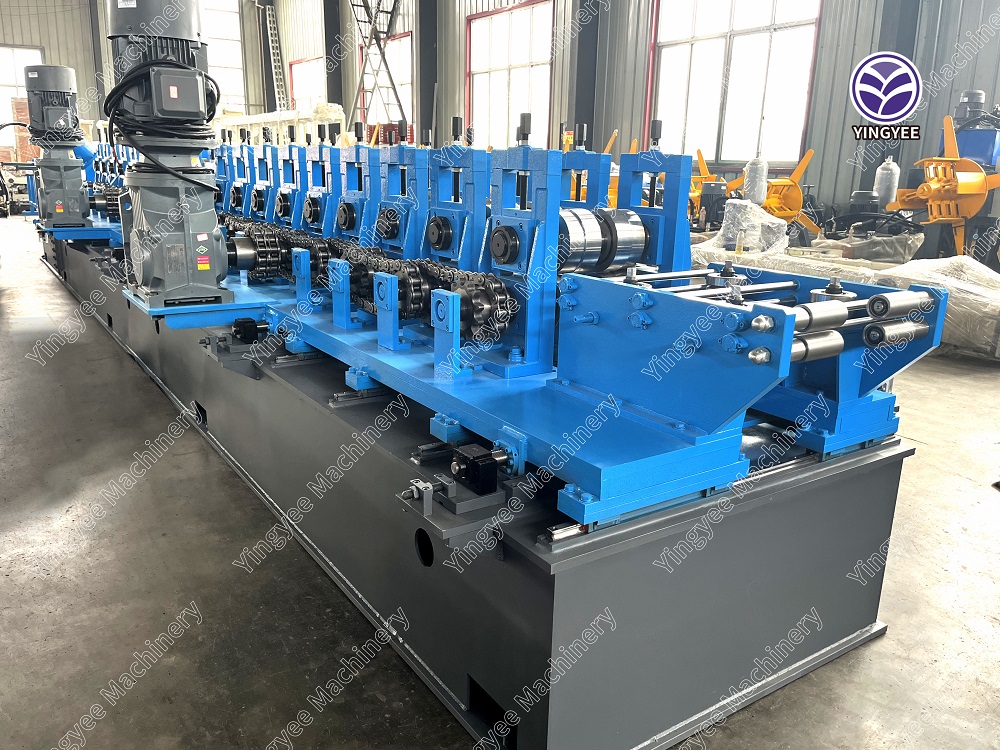
Understanding Solar Structure Roll Forming Machines
In recent years, the global shift towards renewable energy has gained significant momentum, and solar power has emerged as a leading contender in the race to create a sustainable energy future. Central to this solar revolution are the structures that support solar panels, and this is where solar structure roll forming machines play an essential role. These machines are vital for the efficient production of durable, high-quality mounting systems that hold solar panels securely in place.
What is a Roll Forming Machine?
A roll forming machine is a type of industrial equipment that shapes metal sheets into desired profiles through a continuous bending process. In the case of solar structures, these machines are specifically designed to produce profiles that are both structurally sound and optimized for solar panel installation. The process involves feeding a flat metal sheet into a series of rollers that gradually shape it into the final design with precision.
Importance of Solar Structure Roll Forming Machines
The structures produced by roll forming machines are integral to the installation and efficiency of solar energy systems. These structures, typically made of steel or aluminum, provide the necessary support for mounting solar panels on rooftops, ground mounts, or solar farms. The roll forming process allows for the creation of lightweight, yet robust support systems that can withstand environmental stresses such as wind and snow loads.
One of the significant advantages of using roll forming machines for solar structures is the efficiency they bring to the production process. Traditional manufacturing methods may involve more extensive machining and assembly processes, which can lead to higher costs and longer lead times. In contrast, roll forming simplifies production by creating parts in a single continuous process, significantly reducing waste and labor costs.
Features of Solar Structure Roll Forming Machines

Modern solar structure roll forming machines come equipped with advanced features to enhance their performance and productivity. Many machines now utilize computer numerical control (CNC) technology, allowing for precise adjustments and customizations of profiles according to specific project requirements. This level of automation not only improves accuracy but also allows for the rapid production of components in varying sizes and shapes.
Additionally, these machines often include integrated cutting, punching, and bending capabilities, enabling manufacturers to produce complex structures in a single, streamlined operation. The combination of these features ensures that solar mounting systems can be tailored to fit various installation environments, accommodating different panel types and structural requirements.
Environmental Impact and Sustainability
As the demand for renewable energy solutions continues to rise, so does the emphasis on sustainable manufacturing practices. Solar structure roll forming machines contribute positively to this cause by minimizing waste generation through their efficient production methods. The use of recyclable materials, such as aluminum and steel, in creating solar structures also supports the lifecycle approach to sustainability.
Moreover, adopting roll forming technology allows manufacturers to lower their carbon footprint by reducing energy consumption during the production process. As industries increasingly strive to meet stringent environmental regulations, the sustainable nature of roll forming becomes a significant selling point.
Conclusion
In conclusion, solar structure roll forming machines are valuable assets in the production of solar panel mounting systems. With their innovative design, efficiency, and ability to create customized profiles, they play an indispensable role in the growing solar energy market. As global efforts to combat climate change continue, the importance of reliable and sustainable manufacturing methods—including roll forming—will only increase. Therefore, investing in advanced roll forming machines is not only a step forward for manufacturers but also a crucial contribution to the future of renewable energy. By facilitating the rapid deployment of solar power systems, these machines help pave the way towards a greener, more sustainable planet.